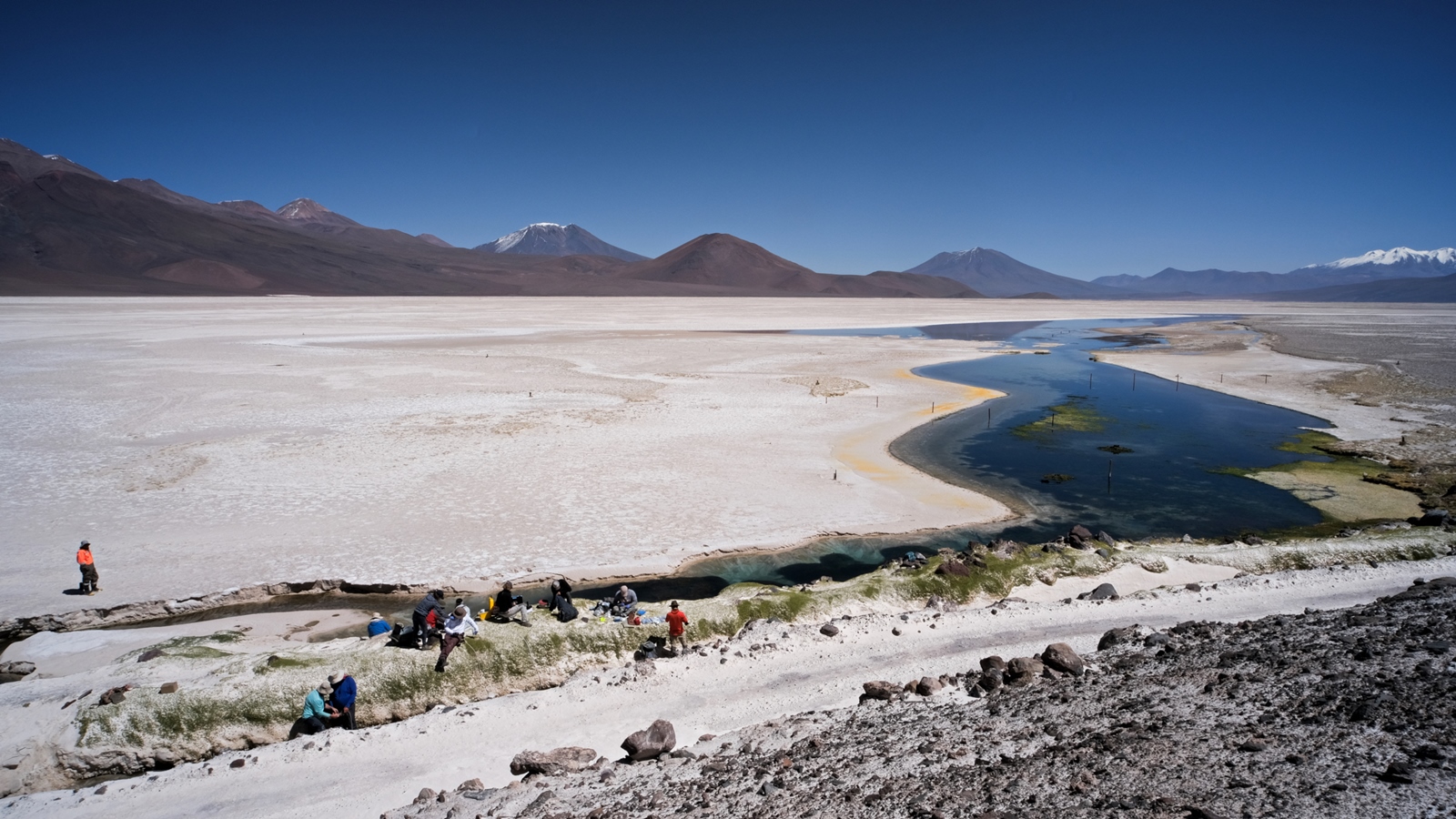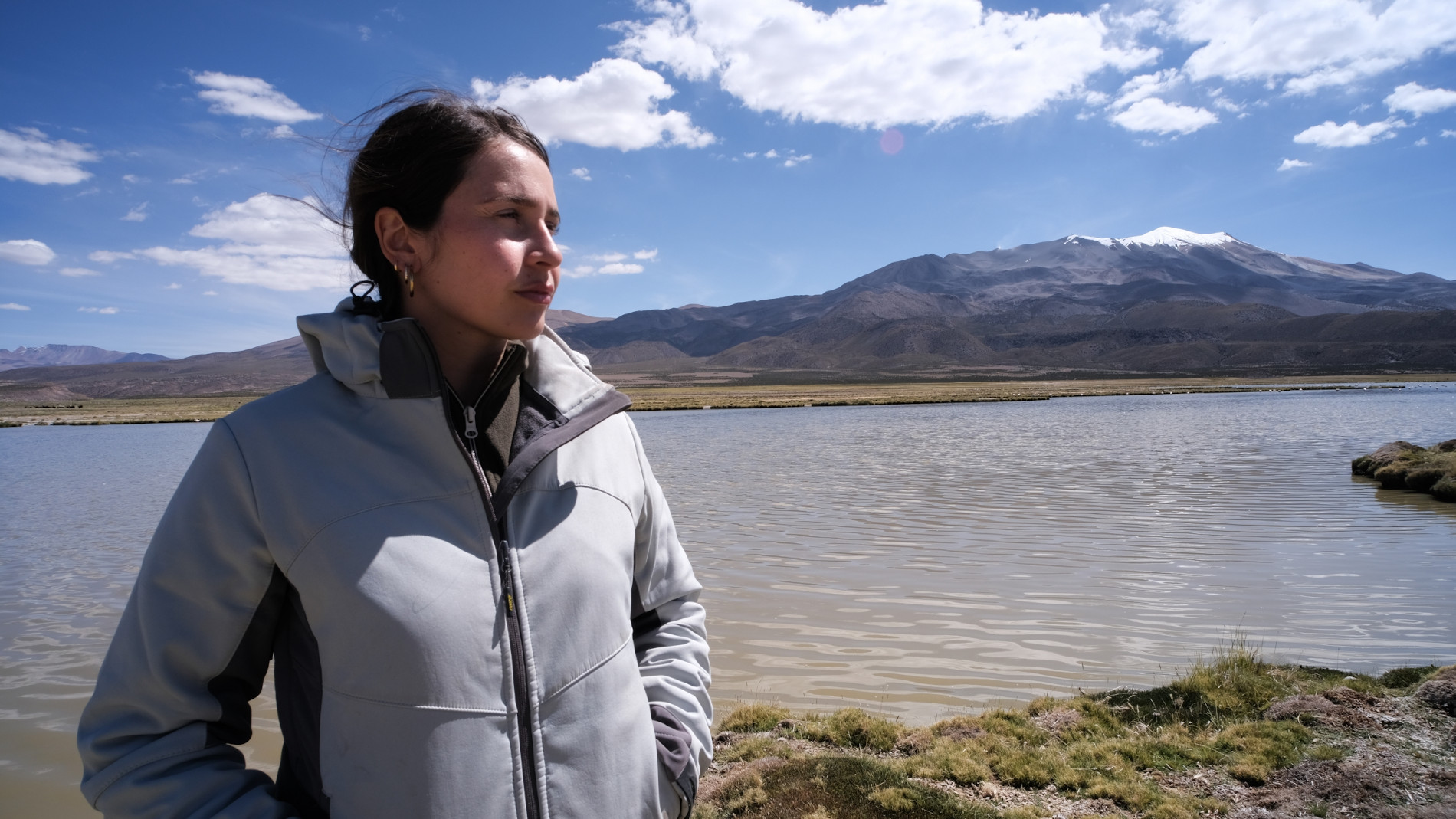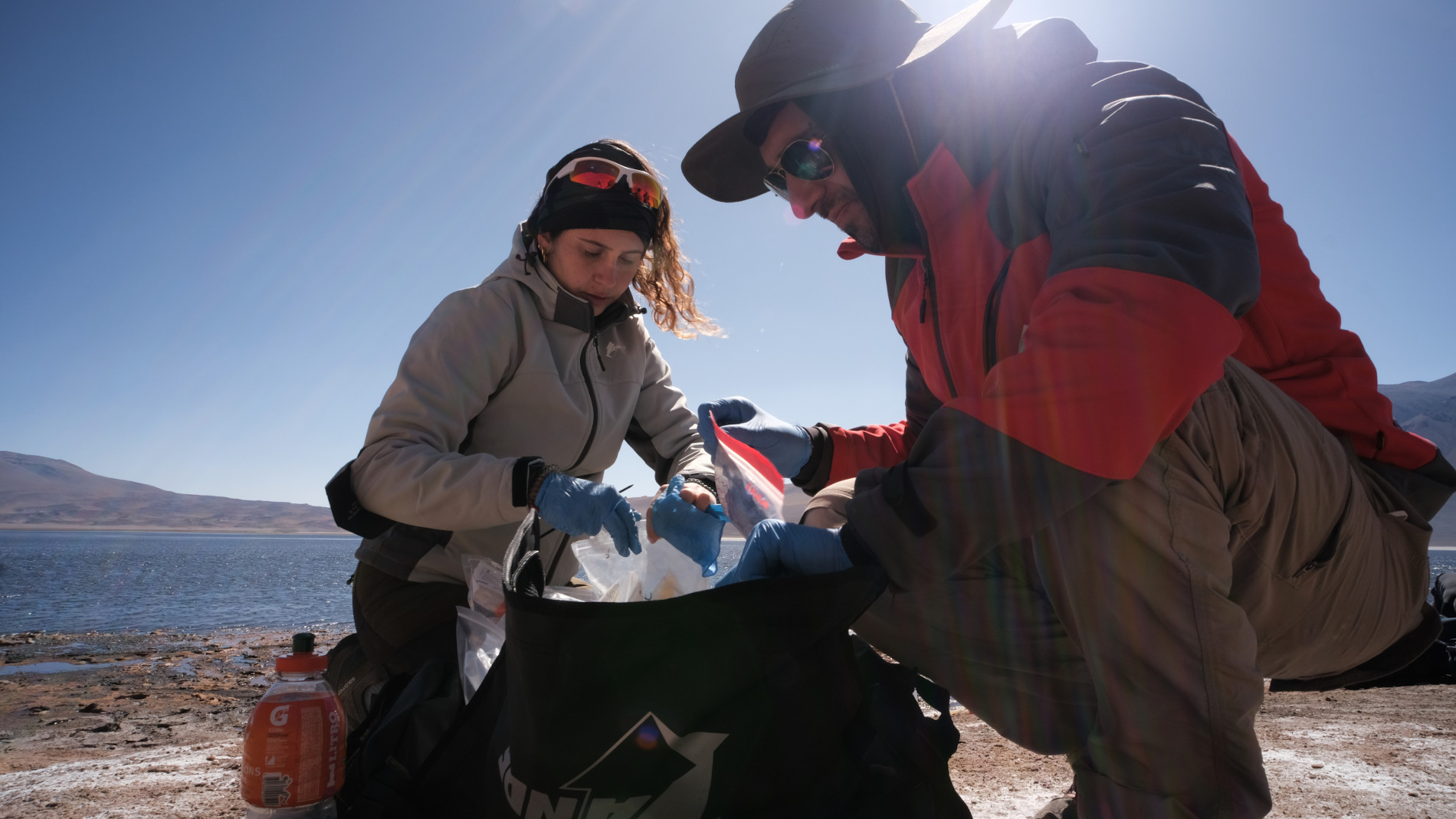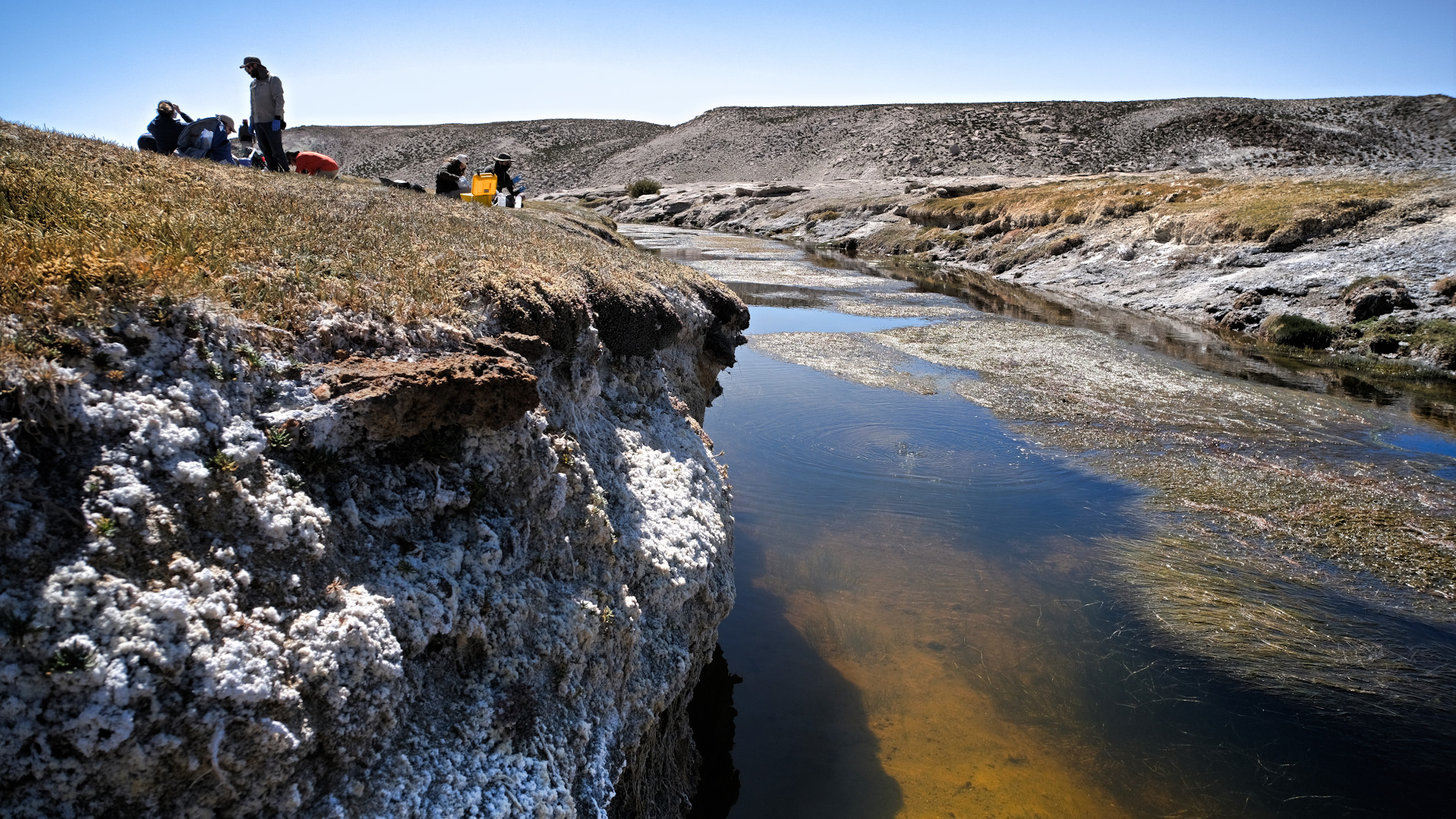5 min to read
3 things I learned doing field work in the desert
Field work requires other skills than just laboratory or analytical skills

![]() Versione in italiano disponibile quí!
Versione in italiano disponibile quí!
Deborah Bastoni, microbiologist at the Department of Biology at University Federico II (Naples). As she came back from a 3 weeks-long, more than 5000 km driving off road in the Chilean Atacama desert, sampling 38 hot springs in search for extreme life in the Andean mountains reflects on what she learned in the field.
The trip she joined was a joint NSF FRES, ANID and ERC CoEvolve expedition. There were 7 countries participating, an average of 20 people travelling on 5 pick-ups from Antofagasta and return. The overall objective was collecting as many samples as possible on a South to North transect from hot springs along the volcanic arc, the continental expression of the massive ocean plate (the Nazca plate) subducing under the South American plate.
It was not easy for her to squeeze out the most important lessons learned in such an intensive experience, which goes beyond the mere collection of water, or mud. Especially challenging is condensing the experience in a nutshell.
 She said: “I thought I knew what field work means. Well, it’s completely different from what I thought! Of course, you load up with a lot of equipment, you get to incredible places, and you start working just like they taught you at the university. Something you discover very soon, however, is that in three weeks spent in Chile, away from home and at high altitude, if something breaks, you have to find a way to make it work, if something is different from what you expected, you still have to understand how to work on it. If you don’t know how to do something, you have to learn it”.
Problem solving, dealing with others, sometimes with people you have never seen before and who have a different way of dealing with issues that may rise, technical, logistical, organizational is something you practise in the field. We asked her to highlight three lessons learned during her field trip in Northern Chile, last month of March.
She said: “I thought I knew what field work means. Well, it’s completely different from what I thought! Of course, you load up with a lot of equipment, you get to incredible places, and you start working just like they taught you at the university. Something you discover very soon, however, is that in three weeks spent in Chile, away from home and at high altitude, if something breaks, you have to find a way to make it work, if something is different from what you expected, you still have to understand how to work on it. If you don’t know how to do something, you have to learn it”.
Problem solving, dealing with others, sometimes with people you have never seen before and who have a different way of dealing with issues that may rise, technical, logistical, organizational is something you practise in the field. We asked her to highlight three lessons learned during her field trip in Northern Chile, last month of March.
Deborah, what is the first thing you would share about your journey to Chile?
“I learned how to load the back of a pickup. In fact, to make 19 researchers travel more than 5000 km among the volcanoes of Chile, and to carry kilos of scientific equipment with you, you need very sturdy cars, and lots of space. To sample a large number of sites, all dozens of kilometres away from each other, we stopped for 3 or 4 days in basic lodges, trying to sample as much as possible around there. Then we moved to the next sampling area. Every time we moved from one accommodation to another, we had to load the cars with all our belongings, which regularly filled up with kilos of desert sand lifted from the cars. We also loaded petrol cans, as we have been to places where it would not be possible to find a place to refuel.

It is a very practical skill, indeed. Is there anything else you have learned?
I also learned that I am not invincible. The days in the field are long and tiring. Especially at high altitude, and we were often well above 4000 meters, the energies run out quickly. Of course, they tell you not to rush and do everything slowly due to the scarcity of oxygen, but you at first you think you don’t need it. Well, when after a few metres you start gasping, you realise that you are not invincible. You look around and you feel very small. Generally the first site of the day was fast and we were all very efficient, but at the end of the day, after several hours driving in those bumping cars, keeping focus and working efficiently was sometimes tricky. 
It seems of you learned to sense your limits. What’s the next thing you have learned?
In Chile I learned the true sense of dressing like an onion. In a day, the sites sampled were at various altitudes, and therefore at different temperatures. Moreover, in Chile the temperature difference between day and night is very strong, it is therefore necessary to be ready to face changes in temperatures every day. This requires dressing in layers. This way you can regulate your body temperature efficiently.
A bonus comment?
The most important thing I have learned, however, is to carefully observe. True, every site is sampled in the same way and using the same tools. Yet each site is different, and although the way to take the sample must be the same, in each place it was important to understand what processes took place and why. I was important looking around and understand what effect the surrounding environment could have on the site. I started sampling the first sites focusing on what I had learned in theory, but as the days went on, by I began interpreting the meaning of each action. I also learnt to observe the people around me. In a group of 19 researchers, all from different backgrounds, confrontation occurs rather often. Observing how others did the same things I do, or how they do things completely different from mine, asking, learning from their dexterity and the way they move in the field, that was one of the main riches of this journey.

